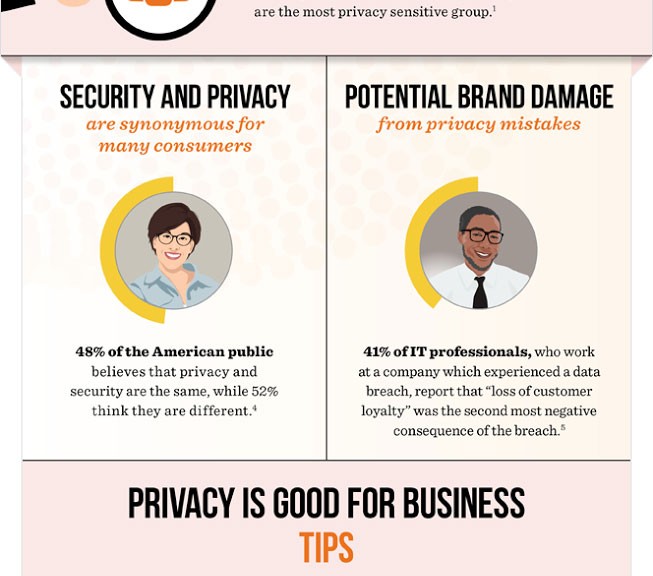Privacy plays a growing part in customer buying decisions. With every data breach, trust is eroded further.
Privacy and security are intertwined when it comes to our individual information. Consumers are becoming increasingly aware of the value of their personal data, so that means that businesses have to step up and do a better job of securing that data. Identity theft is the #1 fear of consumers, but for your business the risk is loss of trust and brand damage.
Since trust is the core of any transaction it’s important to know how privacy factors into your customer’s buying decisions. Research shows that almost 40% of consumers made buying decisions based upon privacy. When looking at who these people are, it was found that these individuals are aged 46-65 and have the highest incomes. But don’t rely on the business of the younger generation to supplant that once trust is lost; 27% of millenials abandoned an online purchase in the past month due to privacy or security concerns.
To mark Data Privacy Day on January 28, the following Privacy is Good for Business tips were created by privacy experts in civil-society, non-profit, government and industry and aspire to help business address the public’s growing privacy concerns:
- If you collect it, protect it. Follow reasonable security measures to keep individuals’ personal information safe from inappropriate and unauthorized access.
- Be open and honest about how you collect, use and share consumers’ personal information. Think about how the consumer may expect their data to be used.
- Build trust by doing what you say you will do. Communicate clearly and concisely to the public about what privacy means to your organization and the steps you take to achieve and maintain privacy.
- Create a culture of privacy in your organization. Explain to and educate employees about the importance and impact of protecting consumer and employee information as well as the role they play in keeping it safe.
- Don’t count on your privacy notice as your only tool to educate consumers about your data practices.
- Conduct due diligence and maintain oversight of partners and vendors. You are also responsible for how they collect and use personal information.

